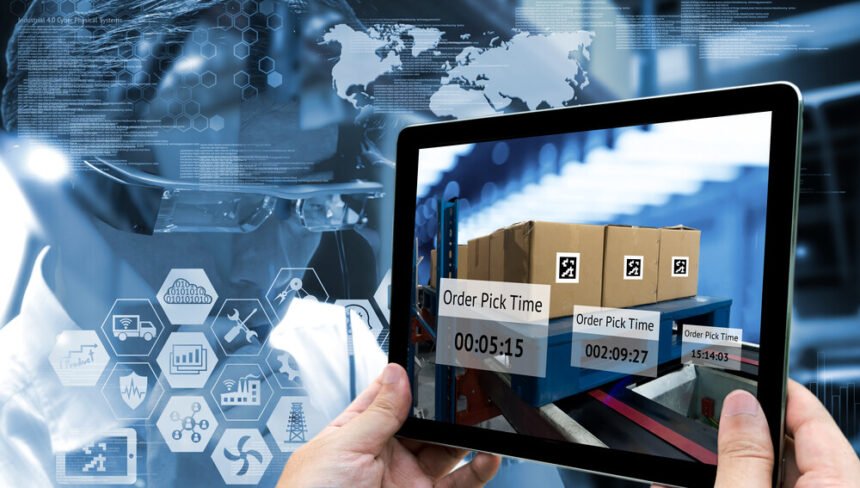Everyone knows about “the Internet,” but people who don’t live and die by the tech headlines may not realize that there have been no fewer than three internets, with a fourth on the way.
These aren’t parallel-universe internets. The old versions are still there, but the emergent internets built upon and came to completely redefine the concept.
They were, in order:
- The World Wide Web—a platform for the static web pages that defined the early internet.
- Web 2.0—an explosion of user-generated content, including social network content like Tweets, Instagram Live, and YouTube videos.
- The Cloud—entire web-based computing systems like remote software applications, available on-demand without direct user management.
The fourth emerging internet? The Internet of Things, aka IoT, which brings the Cloud into the tangible world.
What does this have to do with supply chain logistics? Quite a lot, actually. The Cloud is improving real-world supply chain logistics in ways that far transcend its digital nature. Modern supply chain operators that neglect the Cloud will miss out on opportunities to automate, streamline, and scale their business operations.
Here are five ways the Cloud can be useful in supply chain logistics.
1. Redundancy
Moving data to digital formats has made supply chains more efficient–but also more vulnerable. A power outage or server malfunction could lead to massive losses of data and costly interruptions.
Cloud solutions allow supply chains to build redundancy into their data storage and processes. Cloud-based data backup takes the data from the local server and creates a copy in a cloud-based data environment powered by multiple redundant servers. If the local server dies or is compromised, the cloud-based backup is unaffected and available for recall or restore.
This solution far exceeds the ease of hard backups, which can be just as vulnerable to loss or damage, especially if stored in close proximity to the server. It’s also an easier process to automate.
No data-heavy supply chain can afford to neglect the peace-of-mind that comes from Cloud-based redundancy, especially given how inexpensive Cloud storage has become.
2. Reduced Costs
The inexpensive nature of Cloud computing also highlights the potential of the Cloud to help businesses cut costs. In an environment of rising manufacturing costs, these savings could be critical to keeping the supply chain flowing and the businesses that depend on it afloat.
Cloud computing reduces a company’s dependence on expensive equipment, IT infrastructure, and expert labor to maintain its data and management systems. It does this through off-site hosting at scale, as well as automation software that takes the place of human labor while eliminating human error.
Companies, always sensitive to costs, may find Cloud computing the biggest boon to their supply chains in years.
3. Compliance
Highly-regulated industries, like the pharmaceutical and food production industries, must meet rigid compliance requirements maintained by governmental monitoring organizations like the FDA.
A big part of this compliance burden rests on environmental monitoring. Companies within the supply chain must prove that materials and products are maintained in compliant conditions—for example, the right temperature, pressure, and humidity. Sub-optimal conditions could cause the products or materials to become ruined, even harmful to consumers.
Environmental monitoring has, of late, depended on digital data loggers, self-contained units with a sensor, a processor, and a data drive. Once installed, calibrated, and activated, these digital tools keep an automated record of the conditions they are designed to monitor.
While this was a big improvement over paper tape or manual record-keeping, early digital data loggers required manual download, either by USB connection or—in some cases—wireless technology like WiFi or Bluetooth. Once the data was downloaded, it took labor to collate the data and compile it into a compliance report acceptable to regulators.
Dickson is an example of a company that offers a cloud-based system of implementing environmental monitoring systems that integrate data loggers across large scales. A Cloud-enabled data logger is a wireless solution, with the difference that the data doesn’t need to be manually harvested.
Instead, the data uploads directly to Cloud-based software and storage. Data from different data loggers can even be programmed for automated report compiling, saving supply chain managers even more time in obtaining compliance from regulatory bureaus.
4. Increased Efficiency
Cloud-based systems increase efficiency and reduce costs. This is because a highlight of the Cloud is automation. It’s how data can be automatically compiled into reports, IT infrastructure changed from a daily grind to plug-and-play.
Many management teams fear automation, especially in businesses like supply chain logistics which have been around for a while and have specific ways of doing things. They fear that a machine is just as likely to make a mistake as a human, and without human eyes on the logistics process, huge oversupplies and undersupplies could happen.
However, Cloud-based automation has controls to prevent that, including minimum and maximum parameters, as well as reminders and one-click authorizations. Cloud computing actually reduces the likelihood of human error. It closes open loops and ensures that deadlines and benchmarks don’t get missed because someone in the management chain took their eye off the ball.
5. Scalable
Another hindrance of pre-internet business models is that they are harder to scale. Adding a new facility or warehouse was a logistical nightmare, balancing data from multiple sites and trying to keep them all straight.
Cloud computing is the key to bringing digital efficiency to multi-site suppliers, finally shaping them into a scalable business solution. With Cloud-based management, tracking supplies and inventory across multiple locations is as easy as a few field entries.
Once a company has a working supply chain in place, Cloud-based solutions break down the barriers that stand in the way of scaling the solution 2x, 10x, even 100x. It’s rinse-and-repeat for a business model that never had that advantage before.
Conclusion
As supply chain logistics catch up with 21st Century tech, Cloud computing will take more and more of a starring role. In fact, few processes stand to benefit more from the Cloud than the supply chain. IoT devices like Cloud-based data loggers will be the source of even further leaps forward.








